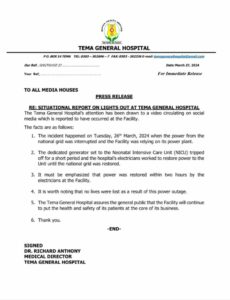

 The Bank of Ghana (BoG) has issued a reminder to the public and financial institutions that the issuance of foreign currency invoices is strictly permitted only for expatriates and non-residents
The Bank of Ghana (BoG) has issued a reminder to the public and financial institutions that the issuance of foreign currency invoices is strictly permitted only for expatriates and non-residents
The Bank said all proceeds from such transactions are required to be paid into a designated Foreign Exchange Account (FEA).
This directive is part of a notice, released by Central Bank, which reiterates the prohibition of unauthorised foreign exchange dealings, often referred to as ‘black market’ transactions.
The Central Bank emphasised that the Ghana Cedi remained the sole legal tender for all domestic transactions.
“It is therefore illegal for any resident individual or institution, unless specifically licensed by the BoG, to price, advertise, or accept payment in foreign currency for goods and services,” the notice stated.
The notice specifically listed prohibited areas, including the payment of school fees, sale and rental of vehicles and real estate, airline tickets, domestic contracts, retail shopping, online sales, and hotel accommodation.
The BoG provided a key exemption to this rule, including foreign currency invoices issued only to expatriates (foreign nationals) or non-residents.
However, the bank stated that this exemption comes with a strict condition, that the funds received from these transactions “shall be paid into a Foreign Exchange Account (FEA) with any licensed bank.”
The Bank mandated that the exchange rates used on these invoices must not be arbitrary.
“They must “reflect prevailing market rates of commercial banks and be benchmarked against the Bank of Ghana’s published reference rate,” it stated.
The BoG stated this measure was designed to ensure transparency and prevent the manipulation of exchange rates in transactions involving foreign nationals.
The BoG clarified that legitimate foreign exchange transfers for external payments remained unimpeded and must be channelled through the banking system, subject to standard regulatory thresholds.
Source: GNA
The post Bank of Ghana tightens rules on foreign currency invoicing, exempts expatriates and non-residents appeared first on Ghana Business News.
Read Full Story
























Facebook
Twitter
Pinterest
Instagram
Google+
YouTube
LinkedIn
RSS